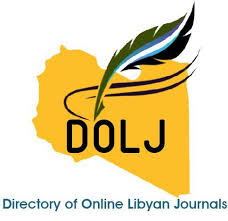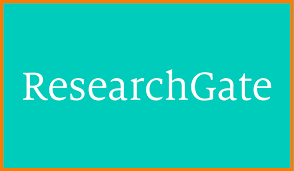Effects of Fasting Ramadan on Glycemic Control and Lipid Profile in Patients with Type 2 Diabetes
DOI:
https://doi.org/10.54361/ljmr15.1.10Keywords:
Blood glucose, Diabetes mellitus, HbAlc, Ramadan fastingAbstract
This study was designed to investigate the effects of fasting the month of Ramadan on the blood glucose levels, glycosylated hemoglobin (HbAlc), and lipid profile among diabetic patients. Patients and Methods: An observational Longitudinal study was conducted on diabetic patients inout patients department in the National Diabetic & Endocrine Center located in Tripoli Libya from May 2017 to July 2017 (i.e. Ramadan 1437). During this time, Ramdan fasts were approximately 16 hours per day. Data on socio-demographic characteristics (age, sex, educational level, and occupation), blood pressure, and anthropometric measurements were collected. The data was obtained using a face-to-face interview, the measurement were using a structured questionnaire, and, blood samples were collected for testing glucose, glycosylated hemoglobin (HbA1c), Lipid profile, urea, and Creatinine (using the Integra 400 Pulse). Result: This study included 46 type 2 diabetic participants (27 men and 19 women). The mean participant age was 53.10±13.33 years. The mean body mass index (BMI) of the participants was 32.49±6.19 kg/m2. 26 participants were treated with insulin. The mean number of days fasted was 28.80±2.45 days. Among both male and female participants, the average levels of blood glucose, HbA1c, total cholesterol, low density and high density lipoprotein cholesterol, triglycerides, systolic and diastolic blood pressures were all significantly lower during Ramadan as compared with before Ramadan (p<0.05).Conclusion: The results revealed that fasting the month of Ramadan has a significant impact on the decrease in blood sugar, HbAlc level, lipid profile, BMI, and blood pressure among diabetic participants. Fasting Ramadan may prove to be beneficial to the health of type 2 diabetic patients.
Downloads
References
Jaleel A M, Raza SA, Naaz F F, and etal(2011). Ramadan and diabetes: As-Saum (The fasting), Indian J EndocrinolMetab. 15(4):268-273 . Mahmoud AI(2007). Managing diabetes during Ramadan. Diabetes Voice.52: 19-22.
Salti I, Benard E, Detournay B, et al(2004). the EPIDIAR Study Group. Apopulation-based study of diabetes and its characteristics during the fasting month of Ramadan in 13 countries: results of the Epidemiology of Diabetes and Ramadan 1422/2001 (EPIDIAR) study. Diabetes Care ,27:2306–11 .
Benaji B, Mounib N, Roky R, et al(2006). Diabetes and Ramadan: review of the literature. Diabetes Res ClinPract 73:117–25.
Bener A1, Yousafzai MT(2014). Effect of Ramadan fasting on diabetes mellitus: a population-based study in Qatar, Egypt Public Health Assoc.;89(2):47-52 .
Bouguerra R1, Jabrane J, Maâtki C, Ben Salem L, HamzaouiJ , et al(2006). Ramadan fasting in type 2 diabetes mellitus. Ann Endocrinol (Paris). Mar;67(1):54-9.
Bener A, Danwish S , Al. Hamaq AO, Mohammad RM, Yousfzai MT(2013). Association of PPARy2 gene variant Pro12Ala polymorphism with hypertension and cbesity in the aboriginal Qatar population known for being consanguineous. App Clin Genet.6:103-111.
Najdawi F, Fa'oui M.(2002). Frequency and types of skin disorders and associated diabetes mellitus in elderly Jordanianis . Middle East Jouranal.8(4/5):575-578. HBa1c
Bouguerra R1, Jabrane J, Maâtki C, Ben Salem L, Hamzaoui J, El Kadhi A, Ben Rayana C, Ben Slama C(2006). Ramadan fasting in type 2 diabetes mellitus. Ann Endocrinol (Paris). Mar;67(1):54-9.
Bener A1, Yousafzai MT(2014). Effect of Ramadan fasting on diabetes mellitus: a population-based study in Qatar. J Egypt Public Health Assoc. Aug;89(2):47-52.
Lamrisenhadji MYI, Elkebir B, Belleville J, Bouchenak M(2009). Assessment of dietryconsumpition and time course of changes in serum lipids and lipoproteins before during and after Ramdan in young Algerian adults Singapore. Med J. 50288-294.
Chentli FI, Azzoug S, Amani MelA, Elgladechi A(2013). Diabetes mellitus and Ramadan in Algeria, Indian J Endocerinolmetab.17 (suppl 1):S295-S298.
Ismail NA1, OlaideRaji H, Abdwahab N, Mustafa N, Kamaruddin NA, Abdul Jamil M(2011).glycemic control among preganant diabetic women on insulin who fasted during Ramadan . IrainJMedSci.36:254-259.
Velayudhan M(2012). Managing diabetes during the musilim fasting month of Ramadan. Med J.Malaysia, .67:353-354. Quiz 355.
Norouzy A, Mohajeri S.M.R, Shakeri S, Sebery M, et al(2012). Effect of Ramadan fasting on glycemic control in patients with type 2 diabetes . JEndocrinol invest 35:766-771.
Sahin SB, Ayaz T, Ozyurt N,llkkilic K, Kirvar A, Sezgin H(2013).The impact of fasting during Ramadan on the glycemic control of patients with type2 diabetes mellitus. Exp clin Endocrinol diabetes ..121(9):531-4.
Halberg N, HenriksenM,Soderhamn N, Stallknecht B, Ploug T, Schjeriling P, et al(2005) effect of intermittent fasting and refeeding on insulin action in healthy men. J APPL physiol.99(6): 2128-36.
Pedersen C R, Hagemann I, Back T, Buscard K(1999) intermittent feeding and fasting reduces diabetes incidence in BB rates. Auto immunity.30(4):243-50.
Shadman Z, Akhoundan M, Nikoo MK( 2014).Areview of Ramadan fasting and diabetes mellitus : controversies regarding the effects of Ramadan fasting on Diabetes patients. Journal of fasting and health. .2(3):119-130.
Al Alwan I, Al Banyan A(2010). Effect of Ramadan fasting on children with type 1 diabetes . I J DM .2:127-9.
Gustaviani R, Soewondo P, Semiardji G, Sudoyo AW(2004). The influence of calorie restriction during the Ramadan fast on serum fructosamine and the formation of beta hydroxybutirate in type 2 diabetes mellitus patients . Acta Med indones. .36(3):136-41.
Afifi ZE. (1997).Daily practices , study performance and health during the Ramdan fast . IRsoc Health .117(4);231-5.
Downloads
Published
Issue
Section
License
Copyright (c) 2021 Aida Elktuni, Basma Almusbahe, Hassan Essamei, Amnalita, Sabria Alturki , Halla H.M Elshwekh (Author)

This work is licensed under a Creative Commons Attribution-NonCommercial-NoDerivatives 4.0 International License.
Open Access Policy
Libyan journal of medical Research (LJMR).is an open journal, therefore there are no fees required for downloading any publication from the journal website by authors, readers, and institution.
The journal applies the license of CC BY (a Creative Commons Attribution 4.0 International license). This license allows authors to keep ownership f the copyright of their papers. But this license permits any user to download , print out, extract, reuse, archive, and distribute the article, so long as appropriate credit is given to the authors and the source of the work.
The license ensures that the article will be available as widely as possible and that the article can be included in any scientific archive.
Editorial Policy
The publication of an article in a peer reviewed journal is an essential model for Libyan journal of medical Research (LJMR). It is necessary to agree upon standards of expected ethical behavior for all parties involved in the act of publishing: the author, the journal editorial, the peer reviewer and the publisher.
Any manuscript or substantial parts of it, submitted to the journal must not be under consideration by any other journal. In general, the manuscript should not have already been published in any journal or other citable form, although it may have been deposited on a preprint server. Authors are required to ensure that no material submitted as part of a manuscript infringes existing copyrights, or the rights of a third party.
Authorship Policy
The manuscript authorship should be limited to those who have made a significant contribution and intellectual input to the research submitted to the journal, including design, performance, interpretation of the reported study, and writing the manuscript. All those who have made significant contributions should be listed as co-authors.
Others who have participated in certain substantive aspects of the manuscript but without intellectual input should only be recognized in the acknowledgements section of the manuscript. Also, one of the authors should be selected as the corresponding author to communicate with the journal and approve the final version of the manuscript for publication in the LJMR.
Peer-review Policy
- All the manuscripts submitted to LJMR will be subjected to the double-blinded peer-review process;
- The manuscript will be reviewed by two suitable experts in the respective subject area.
- Reports of all the reviewers will be considered while deciding on acceptance/revision or rejection of a manuscript.
- Editor-In-Chief will make the final decision, based on the reviewer’s comments.
- Editor-In-Chief can ask one or more advisory board members for their suggestions upon a manuscript, before making the final decision.
- Associate editor and review editors provide administrative support to maintain the integrity of the peer-review process.
- In case, authors challenge the editor’s negative decision with suitable arguments, the manuscript can be sent to one more reviewer and the final decision will be made based upon his recommendations.














